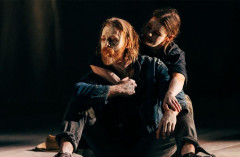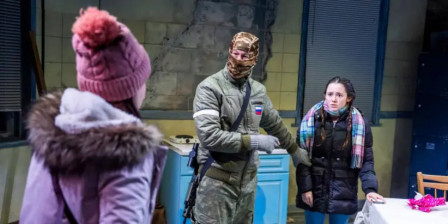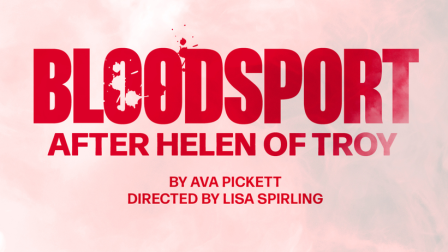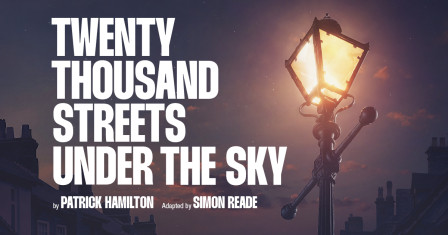Review: THE SECRET RIVER at the National Theatre
 There’s so much that’s satisfying and so much that’s frustrating about Andrew Bovell’s adaptation of Kate Grenville’s novel about early British settlers in Australia.
There’s so much that’s satisfying and so much that’s frustrating about Andrew Bovell’s adaptation of Kate Grenville’s novel about early British settlers in Australia.
It’s a production by Sydney Theatre Company from 2013 that is apparently something of a classic in antipodean theatre.
At its heart is the saga of the Thornhill family; mum, dad and two young sons. Having served his sentence as a convict sent to the new world as punishment for a minor crime by the British Government, the father, William, must decide whether his family’s future is best served by returning to the over crowded London slums or by staying put and staking a claim on an isolated patch of land.
He chooses the latter but of course as all liberal, educated theatre goers already know this is not uninhabited, as it first appears, but the home of a nomadic indigenous people. The play is about the conflict between these existing inhabitants and the white settlers.
The Thornhills, after a shaky start, behave in quite a responsible way establishing a respectful relationship with their new neighbour’s needs and traditions, which stops just short of vacating the stolen land. The kids from both sides are first to open their minds and seek out friendship, then the women folk then the bluff men-folk follow suit.
It’s clear however that some of the other white settlers aren’t going to be as understanding. The guy in the dirty vest who breeds attack dogs is never likely to win any awards for community relations and so it proves. In fact the entire story is entirely predictable.
Comfortingly for the audience, although there are good white guys and dastardly white guys, the locals remain noble throughout and an equilibrium is reached. The big story of their integration over months of struggle is told using fairly standard physical theatre techniques on a bare stage. But it’s absorbing throughout.
Nathaniel Dean as William Thornhill hits all the right beats as an honourable man who bends rather then snaps and the heart of the production is Georgia Adamson, as his wife, Sal, whose practical response to the challenges of immigrant life make for a more nuanced character and story arc. In fact I was surprised to read that the playwright regards William and not Sal as the central character.
My main frustration with the evening is that it’s advertised as the story of two families - presumably the marketing folk are referring to the native family and the British interlopers.
The trouble is the show is propelled by an indigenous woman as narrator who fills us in on the journey and motivations of the characters. Except she doesn’t.
90% of this narration relates to the white characters and we’re left to guess at the thinking of everyone else. If found this mystifying until I read in the programme about the cultural sensitivities informing this decision.
Fair enough. But don’t then promote your show as an even handed last word on a pivotal moment in the shaping of modern and multi-cultural Australia if you’re only going to tell one side of the story.
Latest News

 Review: UKRAINE UNBROKEN at Arcola Theatre
3 March 2026 at 16:18
Review: UKRAINE UNBROKEN at Arcola Theatre
3 March 2026 at 16:18

 New Cast Announced For MAGIC MIKE LIVE
3 March 2026 at 15:09
New Cast Announced For MAGIC MIKE LIVE
3 March 2026 at 15:09

 World premiere of 'BLOODSPORT: AFTER HELEN OF TROY' at Stratford East announced
3 March 2026 at 12:00
World premiere of 'BLOODSPORT: AFTER HELEN OF TROY' at Stratford East announced
3 March 2026 at 12:00

 Troupe Announces World Premiere of TWENTY THOUSAND STREETS UNDER THE SKY
3 March 2026 at 11:28
Troupe Announces World Premiere of TWENTY THOUSAND STREETS UNDER THE SKY
3 March 2026 at 11:28
